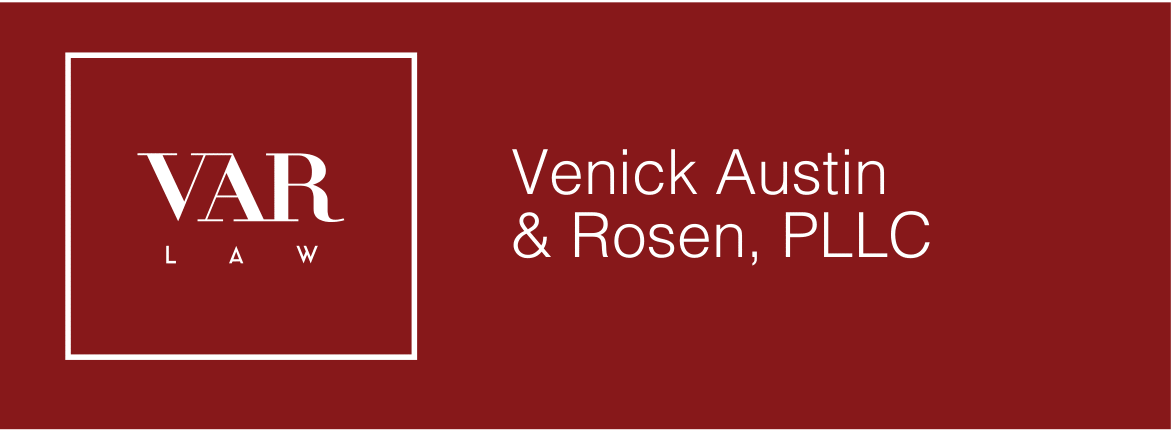2020

The Dangers of Using Online Form Wills
Venick, Kuhn, Byassee, Austin & Rosen, PLLC / 0 Comments /At VKBAR, PLLC we often hear clients ask, “Why can’t I just use an online form Will to make this easier?”
The truth is, if you use an online form Will, it might hold up legally and be perfectly fine. But there’s also a strong chance that it might not. The danger of this happening is simply too great and the consequences too severe for it to be wise to take this path.
One major issue is that online form Wills often claim to be state specific even when they are not. Since every state has its own set of requirements and regulations for Wills, this becomes a major issue. An online form Will that works in Arkansas may not get the job done in Georgia and vice versa. In Tennessee, we have very strict rules about what a Will must provide, making the use of online form Wills particularly concerning here.
Another issue, is that often form Wills don’t offer a way for you to express the specifics of all of your wishes, especially if your estate plan is more complex or in any way unusual.
The greatest danger of using an online form Will is that no one will realize it doesn’t work until it is too late. You can leave your loved ones in a really tough situation if the way in which you expressed your final wishes does not stand up legally. They may have to endure a lot of stress and expense in order to make sure things are done in the way you wanted, or they may, unfortunately, be unsuccessful in this, leaving your estate to be divided and distributed via probate court in accordance with intestate law.
Doesn’t sound like the path you want your estate to take after you pass away? We didn’t think so! That’s why we think it’s so important to forego online form Wills, and instead create your Will and other estate planning documents with an experienced attorney.
Who can help?
At VKBAR, PLLC, we have extensive experience in many areas of law including estate planning. We believe that a strong estate plan, including a strong Will, can give you peace of mind that your wishes will be respected after you pass away and that what you have worked hard for in life will continue to benefit your loved ones after your death. If you have questions about our services or if you are ready to get started, give us a call at (615) 321-5659.

2019

4 Things a Will Does Not Accomplish
Venick, Kuhn, Byassee, Austin & Rosen, PLLC / 0 Comments /Estate planning can be a tricky process to navigate—there are lots of options to consider, and without legal advice, it can be difficult to know which solutions are right for your needs. Many people believe that a Will is the best choice for their family. However, there are several things a Will cannot do that you may be able to accomplish with a living trust.
- Avoid the Probate Process
A Will does not help your family avoid the lengthy and potentially costly probate process after you pass. During probate, your assets are held while the court validates the authenticity of your Will, pays off bills and taxes, and distributes the remains of your estate to your beneficiaries. If you want your beneficiaries to have immediate access to your assets and funds after you pass, a Will may not be the right choice.
- Manage Your Assets While You’re Alive
A Will does not go into effect until you pass away. Individuals who choose a living trust act as the trustee of the trust, allowing them to manage assets, add beneficiaries, and make changes to their estate plans. Individuals can also transfer their assets into the trust if they continue to accrue assets after drawing up the living trust. A Will is not legally enforceable until the named individual dies. If you are suddenly unable to manage your trust, your named successor can manage your assets on your behalf.
- Keep Legal Matters Private
Wills are made public when they go through the legal system, so some of your family’s most private matters become accessible by the general public. This is especially important for those who are local celebrities, politicians, or in the public eye. The media is likely to obtain court records and expose the details of their financial matters. A living trust is not made public, making it a more suitable option for those who want to keep these matters in the family.
- Protect You if You Become Ill or Disabled
While a Will outlines what you want to happen after your death, it does not detail what will happen to you or your assets if you become ill or disabled. If you’re unable to handle your affairs and you only have a Will, the court will assign you a guardian. In comparison, a living trust allows the successor trustee to step in immediately once you become incapacitated.
Taking the time to properly plan your estate can provide for your family after your passing and ensure that all of your hard work continues to benefit your loved ones. If you’re ready to start planning for your family’s future, contact the law office of Venick, Kuhn, Byassee, Austin & Rosen, PLLC to set up a consultation.





